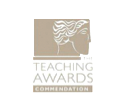Examinations
At St Albans Girls' School, your child will take exams and assessments as necessary so that we can assess their progress internally, and they can achieve public examination results.
Internal assessments will be taken on a regular basis in class. All year groups (except Years 11 and 13) will take internal End of Year Examinations in order to prepare them for the rigours of public exams in the future. Mock GCSE and A level Exams take place in the November/December before their final public exams in May/June. All these exams are taken under formal exam conditions, in classrooms at Key Stage 3 and in the Sports Hall at Key Stages 4 and 5.
Regular retrieval practice and revision are at the heart of teaching and learning at STAGS. The more students retrieve, the more they remember. More details on revision techniques can be found here.
If you have any queries about exams please contact our Exams Officer.
Results Days 2026
Year 13 - A Level/BTEC Results Day is Thursday 13th of August 2026
Year 11 - GCSE/ Cambridge National Results Day is Thursday 20th of August 2026
On results days, students are invited to come into school between 8.15am - 10am to collect their results in person.
If you are unable to collect your results in person, a relative can do this for you. However, they must have a signed letter from you giving permission, and photo identification e.g. Driving licence/ passport. Alternatively, you can email the Exams Officer prior to results day to request that your results are emailed to you. Please note that there will be a slight delay with this option, and results will be sent between 8.30am and 11am.
Staff will be on site between 8.15am-10am to help with any queries, and STAGS Sixth Form enrolment will also take place at this time. Enrolment for external candidates will be between 11am-2pm.
Post Results Services 2026
Forms will be available on the day if any student wishes to make an application for a script to be reviewed.
Guide to Results for Students, Parents and Carers
Public Examinations 2025-2026
Summer 2026 Contingency Day
The awarding bodies have collectively agreed a contingency day for several years now which is always scheduled at the end of the GCSE and A-Level exam timetables. The contingency day is in the event of national or significant local disruption to exams in the United Kingdom.
For the Summer 2026 exams the contingency day is scheduled on Wednesday 24th of June 2026.
Students and parents should consider the contingency day of Wednesday 24th of June 2026 when making their plans for the summer. Candidates must remain available until Wednesday 24th of June 2026 should examinations need to be rescheduled.
A wealth of information is available on the awarding bodies' websites:
AQA
OCR
Pearson
WJEC
Further information can be found in the attachments below. If you have any queries please contact our Exams Officer.
Information for Candidates - Non-examination Assessments 2025-26
Information for Candidates - On Screen Tests 2025 - 26
Information for Candidates - Privacy Notice
Information for Candidates - Social Media
Information for Candidates - Written Examinations 2025 - 26
Preparing to Sit Examinations 2025 - 26
Internal Examinations 2025-2026
Internal assessments will be taken on a regular basis in class. All year groups (except Years 11 and 13) will take internal End of Year Examinations in order to prepare them for the rigours of public exams in the future. All these exams are taken under formal exam conditions, in classrooms at Key Stage 3 and in the Sports Hall at Key Stages 4 and 5.
Key Stage 3 Formal Assessments
Key Stage 3 Assessments will take place towards the end of the academic year.
Student Instructions and Reminders
- Make sure you arrive at school on time and go straight to your exam room. You will have all your exams in this room. You will be sat in alphabetical order. Registration and P5 will be as normal.
- Year 9 only : Make sure you arrive at school on time and go to the Sports Hall. Assembly and p5 as normal.
- Make sure you have all the equipment needed for your exams that day e.g. calculator.
- There will be a short period of time for revision before the exam starts (except in the Sports hall -Year 9 only)
- All exams will be conducted under strict exam conditions;
- Silence
- Nothing out on desks except equipment needed for exam (no reading books)
- No pencil cases except clear ones
- No notes or anything concealed in blazer or writing on hands
- No going into school bag during exam
- No communication of any sort with anyone
- Raise your hand and wait if you need to speak to a teacher
- If you finish early, check over exam and then sit/ or put their head on the desk, in silence.
Any infringement and it will be noted on the paper (0 mark given). Your Director of Learning and your parents will be informed and consequences will be issued.
- If you are entitled to 25% extra time then the exam invigilator will know and you will be instructed to change the colour of your pen at the end of normal time and continue in another colour. If you have other exam access arrangements (e.g. separate room) you will go to LS1 for exams – if this is the case you will be told about it this week.
- If you do not study a subject (e.g. French) you will need to bring a reading book to read during this exam. The invigilator will know this.
- If you feel there are any issues with the exams, see your Director of Learning as soon as possible.
Non-Exam Assessments
What are Non-Examination Assessments?
Non-examination assessments measure subject-specific knowledge and skills that cannot be tested by timed written papers.
There are three assessment stages and rules which apply to each stage. These rules often vary across subjects. The stages are:
- task setting
- task taking
- task marking
A level and GCSE students will be advised of their centre assessed marks on 18 March 2026. Work is marked in accordance with awarding body specifications, internally moderated/ standardised and then moderated externally. Candidates may request a review before their marks are submitted to the awarding body. Candidates are reminded that marks are likely to remain the same but can be brought down. All marks are subject to further change through external moderation.
Requests for reviews must be submitted to the Examinations Office by 5pm on 20 March 2026. A fee is payable for an NEA review by an independent assessor with appropriate competencies. Please see the polices section for more details on how to go about this process.
JCQ Ai Information for Students
Information for Candidates - Non-Examination Assessments 2025-26
Exam Access Arrangements
Exam Access Arrangements (EEA) are put in place to ensure a ‘level playing field’ for all students – they are there to remove barriers to learning and access put there by a long term (12months +) disability as defined in the 2010 Disability Act. They are not there to add knowledge or give an advantage or for academically weak students or students with poor exam technique.
We provide access arrangements for students with a medically diagnosed condition (ASD, dyspraxia,visual impairment) for which we have the formal diagnosis paperwork OR for students who have been identified by teachers and have been tested by the SEN team or external assessor.
The practical application of these arrangements are always in accordance with the annually updated guidance from the Joint Council for Qualifications. Click the link to access: JCQ Access Arrangements 2026
JCQ Guidance about Access ArrangementJCQ Access Arrangements and Reasonable Adjustments 2025-26
Exam Policies
Exam Board Privacy Notices
To be able to provide examinations and assessments, the Exam Boards need to collect and use information about candidates. Further information about this can be found on the following links to the individual Exam Board websites:
AQA: https://www.aqa.org.uk/about-us/privacy-notice
OCR: https://www.ocr.org.uk/about/our-policies/website-policies/privacy-policy/
Pearson: https://qualifications.pearson.com/en/about-us/qualification-brands/gdpr.html
WJEC: https://www.wjec.co.uk/home/privacy-policy/
Our policies relating to examinations can be found below:
Centre Policy for Determining Teacher Assessed Grades
Complaints and Appeals Procedure
Exam Access Arrangements Procedure
Identifying Candidates During Exams Procedure
Malpractice in Examinations and Assessments Procedure
Non-Examination Assessment Procedure
BTEC Collaborative Arrangements
BTEC Internal Verification Policy
BTEC Registration, Entry and Certification Policy
Emergency Evacuation and Exam Contingency Plan
Exam Wellbeing
We recognise that exams can be a cause of great anxiety to students and as such are very aware of our role in helping students to overcome exam anxiety.
At St Albans Girls' School, we run especially tailored exam anxiety courses for Year 10 - 13 students intended to alleviate fears and offer strategies to overcome the symptoms of exam anxiety. If you think your son/daughter would benefit from attending one of these courses, please contact the Exams Team.
We are running Exam Wellbeing Courses for Year 11 and 13 students. Please see the leaflet below for more information.
Support for Year 11 Preparing for GCSE Examinations
Final Examination Content Information, Revision suggestions and NEA deadlines 2026
Herts for Learning GCSE Maths, English & Science revision workshops
Regular retrieval practice and revision are at the heart of teaching and learning at STAGS. The more students retrieve, the more they remember.
The memory is like a muscle. The more the memory is used, the stronger it becomes. Regular retrieval and revision is central to improving recall and memory and at STAGS this is a critical feature of teaching and learning in subjects across the curriculum. Therefore, it is important for retrieval practice and revision to not only be frequent but also to be varied and low stakes in its approach. This section contains a whole host of resources which supports staff, parents and students in applying retrieval practice and revision to learning.
Key Definitions for Revision:
Metacognition - Understanding how learning happens.
Regulation - The ability to be able to manage yourself, for example - managing a revision timetable and sticking to it.
Retrieval Practice - A learning strategy which focuses upon getting knowledge out of the brain. Through the act of retrieval, or calling knowledge to mind, the memory is strengthened and forgetting is less likely to occur.
KS3 Revision Strategies Presentation
If you would like further information on key revision strategies, click on the link to watch our 'Key Stage 3, Revision Strategies Presentation'
Support for Year 13 Preparing for A Level Examinations
Year 13 Information about Final Exams and NEA Deadlines
Regular retrieval practice and revision are at the heart of teaching and learning at STAGS. The more students retrieve, the more they remember.
The memory is like a muscle. The more the memory is used, the stronger it becomes. Regular retrieval and revision is central to improving recall and memory and at STAGS this is a critical feature of teaching and learning in subjects across the curriculum. Therefore, it is important for retrieval practice and revision to not only be frequent but also to be varied and low stakes in its approach. This section contains a whole host of resources which supports staff, parents and students in applying retrieval practice and revision to learning.
Key Definitions for Revision:
Metacognition - Understanding how learning happens.
Regulation - The ability to be able to manage yourself, for example - managing a revision timetable and sticking to it.
Retrieval Practice - A learning strategy which focuses upon getting knowledge out of the brain. Through the act of retrieval, or calling knowledge to mind, the memory is strengthened and forgetting is less likely to occur.














